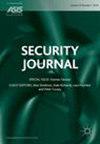Profiling consumers who reported mass marketing scams: demographic characteristics and emotional sentiments associated with victimization
IF 1.2
0 LANGUAGE & LINGUISTICS
引用次数: 0
Abstract
Abstract We examine the characteristics of consumers who reported scams to the U.S. Federal Trade Commission. We assess how consumers vary demographically across six scam types, and how the overall emotional sentiment of a consumer’s complaint (positive, negative, neutral/mixed) relates to reporting victimization versus attempted fraud (no losses). For romance, tech support, and prize, sweepstakes, and lottery scams, more older than young and middle-aged adults reported victimization. Across all scam types, consumers classified as Black, Hispanic, and Asian/Asian Pacific Islander were more likely than non-Hispanic white consumers to report victimization than attempted fraud. Relative to complaints categorized as emotionally neutral or mixed, we find that emotionally positive complaints and emotionally negative complaints were significantly associated with victimization, but that these relationships differed by scam type. This study helps identify which consumer groups are affected by specific scams and the association between emotion and victimization.

分析报告大众营销骗局的消费者:与受害相关的人口特征和情感情绪
摘要:我们研究了向美国联邦贸易委员会举报诈骗的消费者的特征。我们评估了消费者在六种诈骗类型中的人口统计学差异,以及消费者投诉的总体情绪(积极、消极、中性/混合)与报告受害与欺诈未遂(无损失)之间的关系。对于爱情、技术支持、奖金、抽奖和彩票骗局,老年人比年轻人和中年人更容易受到伤害。在所有诈骗类型中,黑人、西班牙裔和亚洲/亚太岛民的消费者比非西班牙裔白人消费者更有可能报告受害,而不是企图欺诈。相对于情绪中立或混合的投诉,我们发现情绪上积极的投诉和情绪上消极的投诉与受害显著相关,但这些关系因骗局类型而异。这项研究有助于确定哪些消费者群体受到特定骗局的影响,以及情绪与受害之间的关系。
本文章由计算机程序翻译,如有差异,请以英文原文为准。
求助全文
约1分钟内获得全文
求助全文
来源期刊
CiteScore
3.50
自引率
0.00%
发文量
35
期刊介绍:
The?Security Journal?is a dynamic publication that keeps you informed about the latest developments and techniques in security management. Written in an accessible style it is the world's premier peer-reviewed journal for today's security researcher and professional. The journal is affiliated to ASIS International and has an advisory board which includes representatives from major associations expert practitioners and leading academics.The?Security Journal?publishes papers at the cutting edge in developing ideas and improving practice focusing on the latest research findings on all aspects of security. Regular features include personal opinions and informed comment on key issues in security as well as incisive reviews of books videos and official reports.What are the benefits of subscribing?Learn from evaluations of the latest security measures policies and initiatives; keep up-to-date with new techniques for managing security as well as the latest findings and recommendations of independent research; understand new perspectives and how they inform the theory and practice of security management.What makes the journal distinct?Articles are jargon free and independently refereed; papers are at the cutting edge in developing ideas and improving practice; we have appointed an Advisory Board which includes representatives from leading associations skilled practitioners and the world's leading academics.How does the journal inform?The?Security Journal?publishes innovative papers highlighting the latest research findings on all aspects of security; incisive reviews of books videos and official reports; personal opinions and informed comment on key issues.Topics covered include:fraudevaluations of security measuresshop theftburglaryorganised crimecomputer and information securityrepeat victimisationviolence within the work placeprivate policinginsuranceregulation of the security industryCCTVtaggingaccess controlaviation securityhealth and safetyarmed robberydesigning out crimesecurity staffoffenders' viewsPlease note that the journal does not accept technical or mathematic submissions or research based on formulas or prototypes.

 求助内容:
求助内容: 应助结果提醒方式:
应助结果提醒方式:


